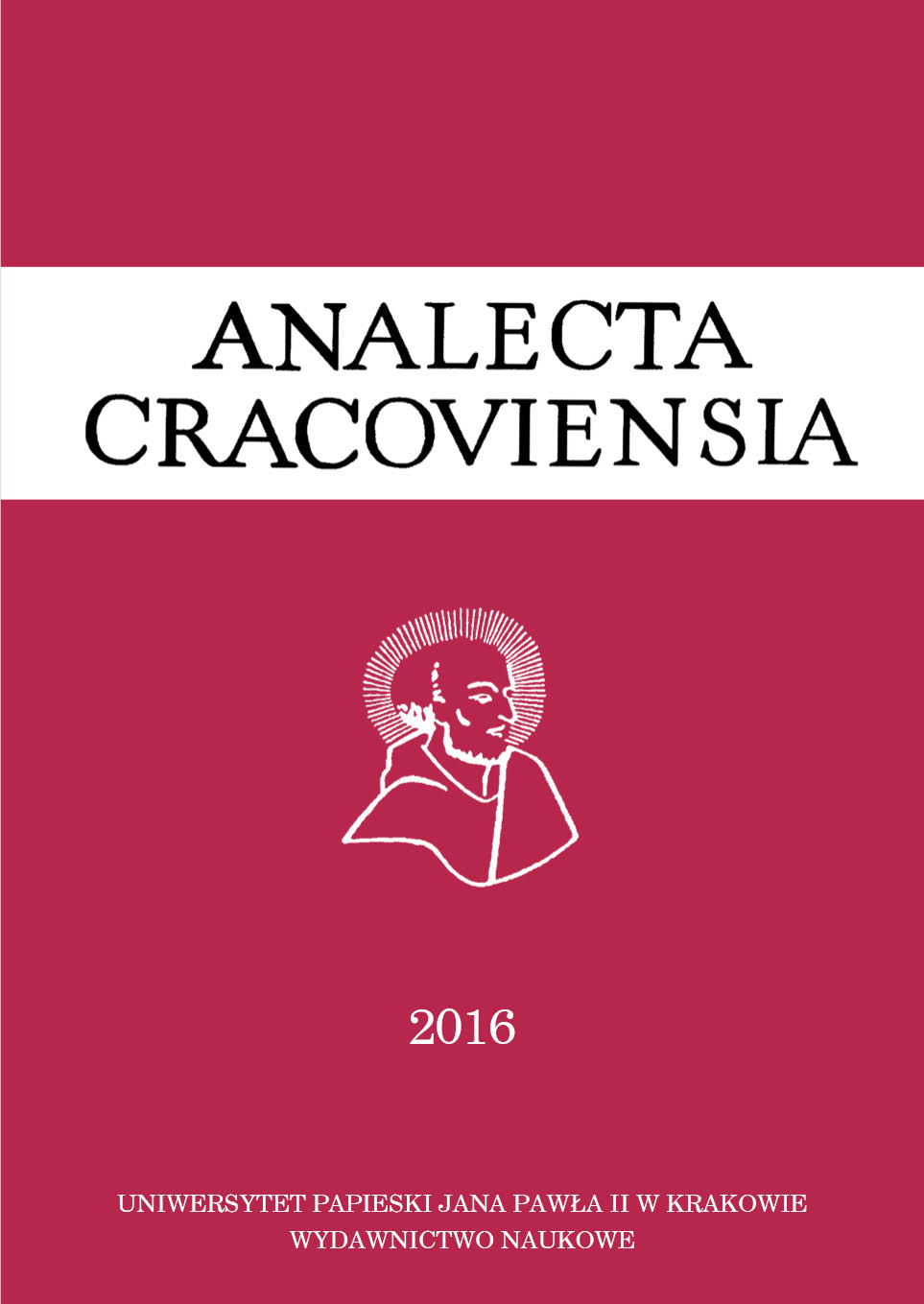The works of mercy toward the body and soul. History and practice
DOI:
https://doi.org/10.15633/acr.2017Keywords:
divine mercy, mercy to the poor, alms, catechism, charity parochial, St. Faustina, St. John Paul II, Pope FrancisAbstract
The Church made assisting the poor and needy an important part of its mission, as a response to an explicit command to enact the commandment to love one’s neighbor given by Christ. The obligation to show an active love of neighbor is expressed in the catechism formula of works of mercy toward the body and soul. The article analyzes both the genesis of this formula, as well as its historical interpretation over the centuries.The corporal works of mercy have been clearly stated by Christ Himself in the context of the teaching of the last judgment recorded in the Gospel of Matthew 25:31–40, however the spiritual works of mercy find their biblical justification in different places of the Gospels. In III century Origen in the spirit of allegorical exegesis interpreted the works of mercy mentioned in the Gospel of Matthew also as a call to help in the spiritual needs of man, and after him St. Augustine in the West. In this way, gradually the list of seven works of mercy concerning the soul was established.
St. Thomas Aquinas gave us the classical moral interpretation of the acts of mercy, establishing the conditions under which they are a strict moral obligation. I the later period in the practice of charity stressed the elements such as: a personal experience of God’s mercy as a call to help others (St. Faustina), valuing man in his dignity (St. John Paul II) and recentely a concern for people excluded or deprived of opportunities of self-development (Pope Francis).
References
Źródła
Benedykt XVI, Encyklika Deus caritas est (25 grudnia 2005).
Franciszek, Adhortacja Evangelii gaudium (24 listopada 2013).
Franciszek, Bulla Misericordiae vultus (11 kwietnia 2015).
Franciszek, Encyklika Laudato si’ (24 maja 2015).
Jan Paweł II, Dar Boży dla naszych czasów, homilia na mszy kanonizacyjnej bł. Faustyny Kowalskiej (30 kwietnia 2000).
Jan Paweł II, Encyklika Dives in misericordia (30 listopada 1980).
Jan Paweł II, Orędzie na Wielki Post 1983.
Jan Paweł II, Orędzie na Wielki Post 1984.
Jan Paweł II, Przekroczyć próg nadziei, Lublin 1994.
Pius XI, Encyklika Quadragesimo anno (15 maja 1931).
Literatura
Bądźcie miłosierni jak Ojciec wasz jest miłosierny (Łk 6, 36), red. T. M. Dąbek, Kraków 2002.
Degórski B., Uczynki miłosierdzia w świetle starożytnych reguł mniszych, „Vox Patrum” 1996, z. 30–31, s. 259–274.
Kowalska F., Dzienniczek, Kraków–Stockbridge–Rzym 1981.
Noldin H., Summa theologiæ moralis, vol. 2: De præceptis, Insbruck 1955.
Noye I., Miséricorde, [w:] Dictionnaire de spiritualité, vol. 10, part. 2, kol. 1328–1349.
Ryłko T., Bogaci w miłosierdzie, Kraków 1995.
Sobkowiak J. A., Nowe uczynki miłosierdzia, [w:] Abyśmy się stali synami Bożymi, Warszawa 2011, s. 217–232.
Strzeszewski C., „Bona superflua” w etyce społecznej św. Tomasza z Akwinu, „Roczniki Filozoficzne” 8 (1960) z. 2, s. 53–59.
Szkoła miłosierdzia świętej Faustyny i Jana Pawła II, red. F. Ślusarczyk, Kraków 2008.
Tomasz z Akwinu, Summa theologiæ.
Wejman H., Personalistyczna koncepcja miłosierdzia, „Teologia i moralność” 2 (2007), s. 210–211.
Zulehner P. M., Bóg jest większy od naszego serca. Teologia i duszpasterstwo miłosierdzia, Kraków 2010.
Downloads
Published
Issue
Section
License
Authors who publish with this journal agree to the following terms:
- Authors retain the copyright and full publishing rights without restrictions, and grant the journal right of first publication with the work simultaneously licensed under a Creative Commons Attribution 4.0 International License that allows others to share the work with an acknowledgement of the work's authorship and initial publication in this journal.
- Authors are able to enter into separate, additional contractual arrangements for the non-exclusive distribution of the journal's published version of the work (e.g., post it to an institutional repository or publish it in a book), with an acknowledgement of its initial publication in this journal.
- Authors are permitted and encouraged to post their work online (e.g., in institutional repositories or on their website) prior to and during the submission process, as it can lead to productive exchanges, as well as earlier and greater citation of published work (See The Effect of Open Access).

